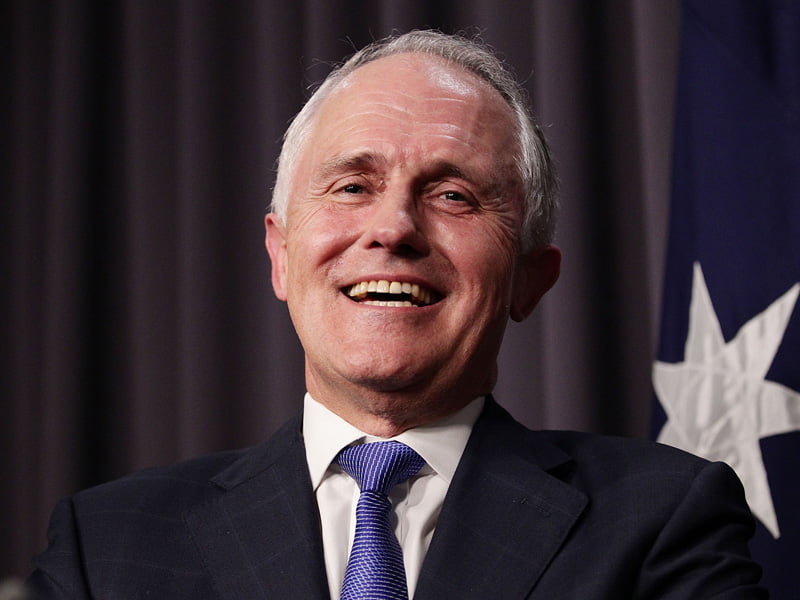If a week is a long time in politics, spare thought for the Prime Minister Malcolm Turnbull, who has now been in the job for a year.
His expert knifing of predecessor Tony Abbott led many to think that finally, the man born to be king – just ask him – had finally mastered the dark arts for success in Canberra.
Naturally enough, on his one-year anniversary in the toughest gig in Australian show business, the commentariat has been out in force assessing his record.

Not much of it has been complimentary. This is because in the past year it has become all too apparent that the intellectually brilliant, charming and handsome bloke who has been good at everything he has tried, has now found the one thing at which he is not a natural: Being Prime Minister.
But far more unfounded are the assessments, or rather accusations, that he has not achieved anything in the past 12 months.
This publication is concerned with technology and innovation, with a particular focus on public policy that shapes the sector.
And it is here that Mr Turnbull has kicked plenty of goals.
In fact, it is so far his outstanding contribution to Australia, and it is a vital and important one.
Mr Turnbull pretty much kicked off his term in The Lodge with his $1.1 billion innovation package, at the same time appointing Australia’s first Assistant Minister for Innovation in the now departed Wyatt Roy.
Innovation was finally parked where it always should have been – in the Industry portfolio under Christopher Pyne and his successor Greg Hunt.
The singular focus, so early on in his Premiership, finally began a national conversation that has been so long overdue as Australia, which had struggled through the Luddite years of Julia Gillard and Tony Abbott, who barely mentioned the sector’s specific issues.
Ms Gillard, at least, had the legacy of the Kevin Rudd/Stephen Conroy National Broadband Network which – think what you like about it – was an acknowledgement of the importance of technology and the knowledge economy.
But while Labor had often talked about the benefits of the digital economy it was Mr Turnbull, a rare politician with real work experience in the technology sector, who has laid out and promoted the opportunities.
For sure, the ambition of creating Sydney as the centre for FinTech in Asia was a pigs-might-fly-move (look at Singapore, Hong Kong, Shanghai or even Jakarta for a reality check).
This, and the focus on startups and offshore landing pads left the perhaps wrong impression that Mr Turnbull was all about startups.
Let’s also not forget that the long run-up and election campaign soaked up about three months, on top of Australia’s dead time during the December/January summer break, and since the election all that has changed.
Wyatt Roy, of course, was beaten in his seat. But in Greg Hunt, the Prime Minister has a much more knowledgeable and rounded senior minister for the sector.
And by shifting Christopher Pyne to Defence Industry – a further opportunity for the sector to suck up dollars from the multi-billion dollar submarine contracts and the rest, perhaps this will give Adelaide the running on becoming something of tech hub.
Mr Turnbull has also restored at least some of the funding to CSIRO, specifically for climate change research in an acknowledgement that this is a stand-out field where countries who are ahead of the game have an opportunity to create a vibrant and valuable industry.
The Digital Transformation Office, while announced under Tony Abbott’s leadership was all Malcolm Turnbull’s work, based on the model used and work done in the United Kingdom.
As noted on this site recently it has been something of a revolving door, but the minister in charge, Angus Taylor is a rising star in the party.
He is a rare politician these days who has decades of real-world business experiences prior to entering the political fray.
Such a project is long-game, but the DTO now has a couple of good years to start kicking some goals and to deliver value to voters through visible improvements to government service.
Still, there is clearly plenty of work to do here after the embarrassing failure of the 2016 census from the day it was released. This put a nasty dent in Mr Turnbull’s technology credibility, as well as the government bureaucracy more generally to deliver digital services
But the swift action to shut the site down was done proactively in the name of risk management, rather than by the attacks themselves
There is, of course, a particularly big asterisk on the Prime Minister’s tech performance. His central role in turning the misnamed National Broadband Network, what was once one of the great nation-building projects in Australia’s history into a government-owned version of Telstra wholesale’s mishmash of best effort broadband services.
But perhaps things are changing. Stay tuned.
Many report cards have completely ignored the huge momentum in technology and innovation industries. And it is huge.
While it is the industry that has built this momentum, the Prime Minister should rightly take credit for creating an environment in which smart entrepreneurs and researchers are absolutely going for it.
This message still has some repeating to get through to the mainstream.
But it’s been a very good start for our first tech Prime Minister, even if this may be his only truly bright spot. A minus.
Do you know more? Contact James Riley via Email.
